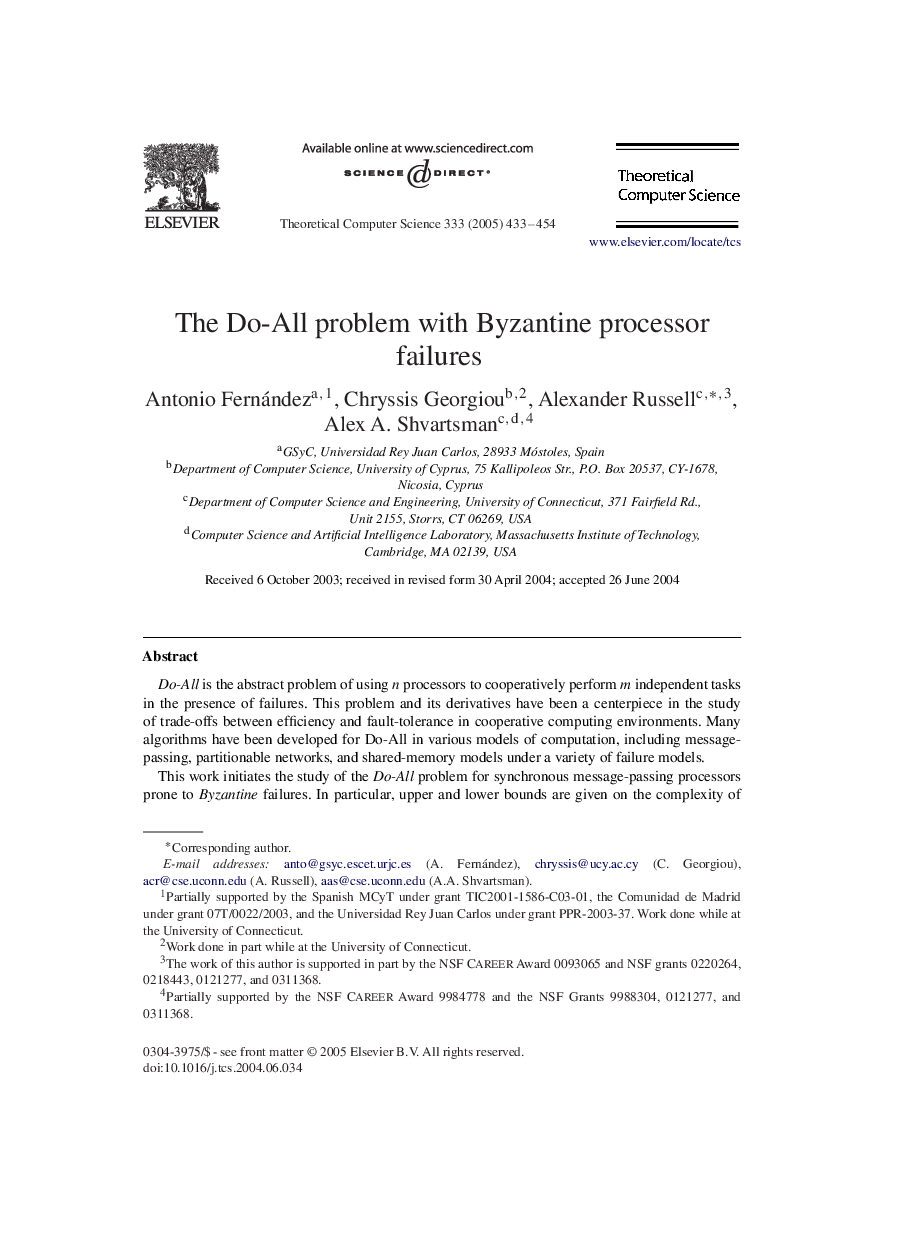| Article ID | Journal | Published Year | Pages | File Type |
|---|---|---|---|---|
| 10334303 | Theoretical Computer Science | 2005 | 22 Pages |
Abstract
This work initiates the study of the Do-All problem for synchronous message-passing processors prone to Byzantine failures. In particular, upper and lower bounds are given on the complexity of Do-All for several cases: (a) the case where the maximum number of faulty processors f is known a priori, (b) the case where f is not known, (c) the case where a task execution can be verified (without re-executing the task), and (d) the case where task executions cannot be verified. The efficiency of algorithms is evaluated in terms of work and message complexities. The work complexity accounts for all computational steps taken by the processors and the message complexity accounts for all messages sent by the processors during the computation. The work and messages of a faulty processor are counted only until the processor fails to follow the algorithm. It is shown that in some cases obtaining work Î(mn) is the best one can do. It is also shown that in certain cases communication cannot help improve work efficiency.
Keywords
Related Topics
Physical Sciences and Engineering
Computer Science
Computational Theory and Mathematics
Authors
Antonio Fernández, Chryssis Georgiou, Alexander Russell, Alex A. Shvartsman,
